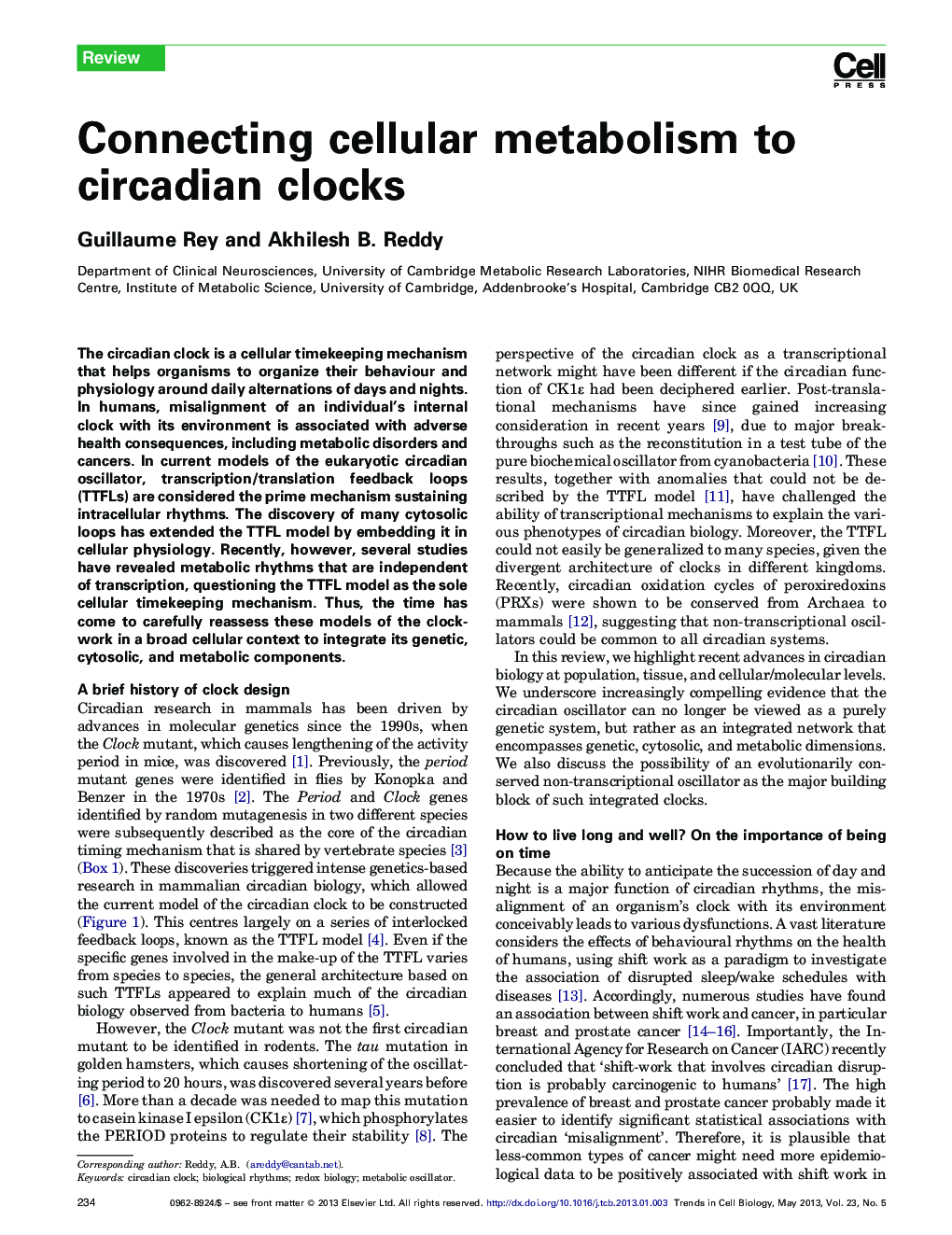| Article ID | Journal | Published Year | Pages | File Type |
|---|---|---|---|---|
| 2204637 | Trends in Cell Biology | 2013 | 8 Pages |
The circadian clock is a cellular timekeeping mechanism that helps organisms to organize their behaviour and physiology around daily alternations of days and nights. In humans, misalignment of an individual's internal clock with its environment is associated with adverse health consequences, including metabolic disorders and cancers. In current models of the eukaryotic circadian oscillator, transcription/translation feedback loops (TTFLs) are considered the prime mechanism sustaining intracellular rhythms. The discovery of many cytosolic loops has extended the TTFL model by embedding it in cellular physiology. Recently, however, several studies have revealed metabolic rhythms that are independent of transcription, questioning the TTFL model as the sole cellular timekeeping mechanism. Thus, the time has come to carefully reassess these models of the clockwork in a broad cellular context to integrate its genetic, cytosolic, and metabolic components.
